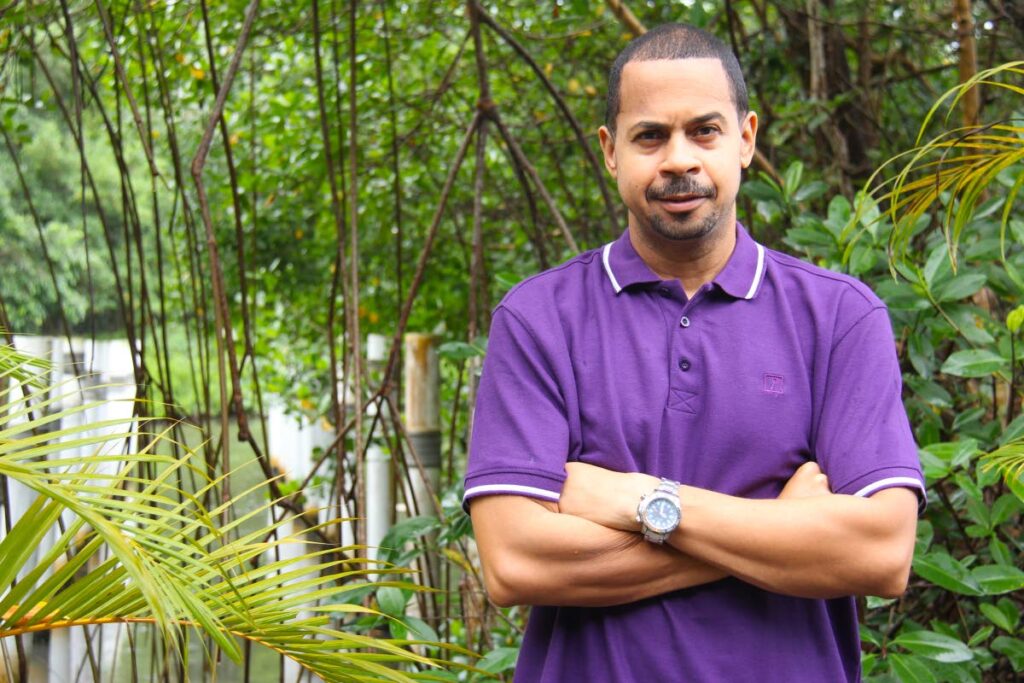The great 'tambrand' debate

Paolo Kernahan
I followed the "tambrand" debate online, albeit vicariously. Heated discussions flared up around a Facebook post about a segment on a local television show. It's funny how a simple word could set off a firestorm of controversy over standard English vs "we cultear."
Commenters bristled at the perceived misspelling of the word "tamarind." In one segment, presumably meant to be the levity interlude, people in the street were asked the correct spelling of a word and were given two options: tambrand and tambram.
Tambrand was identified as "correct."
Now that, as my mother used to say, is where de starboy get kill.
Pesky purists pointed out that an edutainment format teaching kids about spelling shouldn't be reinforcing dialect over standard English.
Folks having seizures over the "tambrand" spelling had a valid point, though. Children won't get that the segment is meant as a light-hearted moment celebrating dialect – they will only see "tambrand" identified as the correct spelling on a national TV station.
Others joined the thread with "T-a-m-b-r-a-n-d! That is how I know it spell." Surely other folks say "tambran" and possibly "tambram." In the milieu of colloquialisms, what is the incorrect word if each person interprets it differently?
In that sense, all spellings are correct.
"Cyandidates...here you have a pittear of a common vultear – please give the spellin' of what this kree-tear is called."
Contestant number three buzzes in:
"Yes'm – K O B O or C O B O or C A Dubya B O
Yes! All is correck!
That imagined scenario is heavy on hyperbole and snark.
The point is, it doesn't matter if the "tambrand" insert wasn't broadly indicative of the overall intent of the programme or its academic rigour. An English school test wouldn't accept that spelling eem self if de TV say so.
Perhaps the Port of Spain city corporation should change the name of Tamarind Square to Tamarind/Tambrand/Tambram Square. Why not put up a new sign so at least resident vagrants will have a forwarding address for their "mails"?
Defenders of the Trini tongue behave as though our way of speaking is being supplanted by some neocolonialist affectation of speech.
You only need to open your ears: listen to the way the Prime Minister, radio announcers and some teachers speak. Our dialect nut in no danger of ex-stink-shun!
It's easy to get wrapped up in unending, esoteric philosophical debates about the syntactic cultural underpinnings of national identity.
The world, however, doesn't care about any of that claptrap. You're either understood or you aren't. And too besides, there's no reason dialect and standard English can't co-exist in the lexicon of our people.
Like the man said, though – you must first learn the rules before you break them. By not giving our children a foundation in standard English –by holding to the notion that it's a legacy of colonial hegemony – we're preparing them for smallness.
Trinidad is no longer an oil and gas power. No one's coming here to fall at our feet. This country can't generate the economic opportunities needed to keep all citizens together body and soul. We must learn to navigate the world on terms other than ours. Upcoming generations will have to communicate with people in other countries to pursue their professions.
As one example, in TT there are call centres serving companies in the US. With untrammelled growth in digital communication among people in different time zones, this is only likely to increase.
You cyar just talk how you want when yuh dealing with outsiders. Children need to be anchored in standard English, as they're too young to have the ability to switch back and forth between Trini dialect and SE.
Kids don't need to be taught dialect. That software comes standard. We can be proud of our Trini tongue and still value being intelligible to English speakers everywhere in the world.
For too long people have been nourished on the milk of Trini exceptionalism. We bought into the idea that we are the best, the brightest, the most creative, etc. Remember "Take your oil rig and go?"
Our perceived qualities are meaningless if we can't communicate them to those willing to pay for them or invest in us.
What the dialect brigade doesn't understand is people around the world need a common language to connect. For many, that language is standard English. You can either fight for your tambrand or you can fight for the future. It depends on which pat you want this country to be in a rapidly-evolving world.


Comments
"The great 'tambrand' debate"